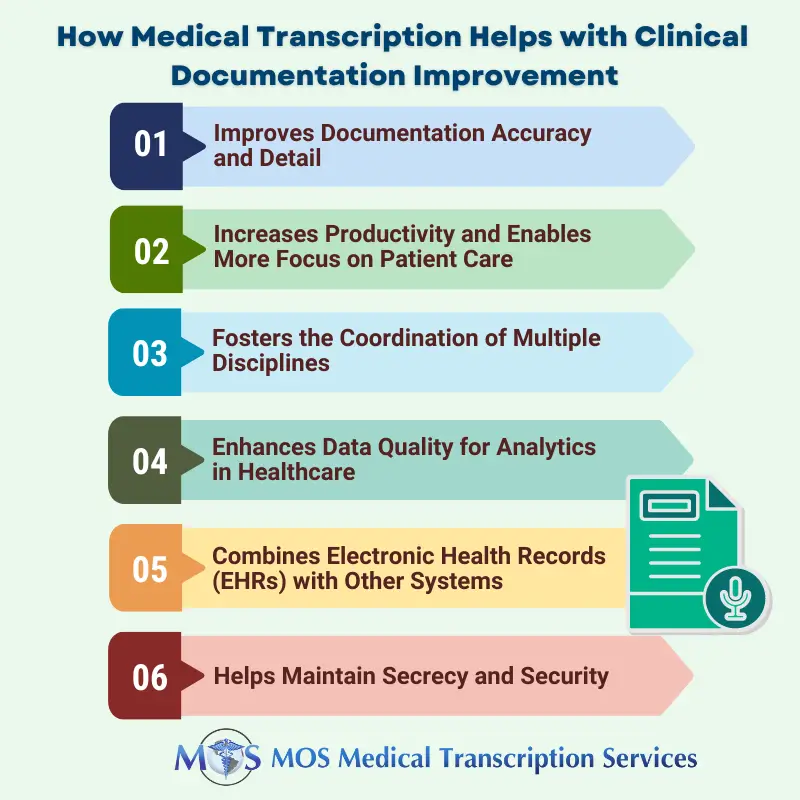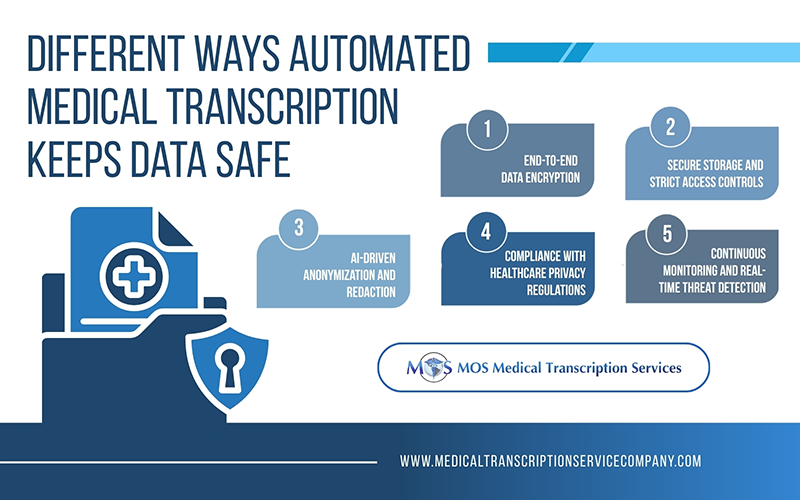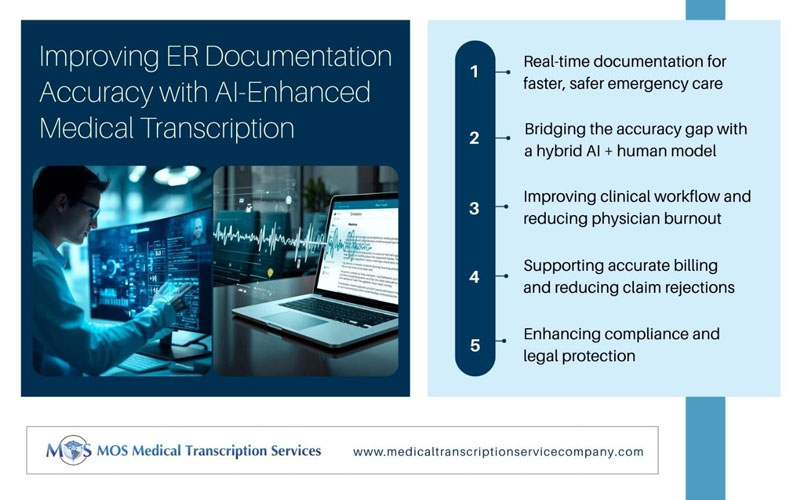Table of Contents
Clinical documentation specialists evaluate patient records to determine if they are accurate and include all the important medical details, and provide feedback to physicians. A medical transcription company plays a key role in documenting physician dictations relating to all types of reports from history, physical and clinical notes to discharge summaries and follow-up notes. Clinical documentation improvement (CDI) programs identify clinical indicators to ensure that the diagnoses and procedures are supported by ICD-10-CM codes. Investing in (CDI) along with medical transcription services will ensure medical documentation accuracy which proves that the care was delivered based on the diagnosis made.
Why Is Clinical Documentation Improvement Important?
The systematic method used to improve healthcare documentation quality and integrity is called clinical documentation improvement. To make sure that medical records appropriately reflect a patient’s clinical status, diagnostic data, and the care given, they must be carefully reviewed and revised. All relevant patient data is gathered, promoting efficient patient record improvement and enabling better communication among healthcare professionals. Precise documentation is essential for medical coding and billing and supports many facets of the industry, including quality control and patient safety. It guarantees that medical facilities meet all legal requirements and are fairly compensated.
Possible Consequences of Inaccuracies
Clinical documentation errors can have serious repercussions for patients as well as healthcare professionals. It may result in inaccurate treatment regimens, misdiagnoses, and potentially unfavorable outcomes for patients. Inaccurate clinical notes also make it difficult for medical professionals to collaborate with one another, which may cause treatment delays and subpar patient care. Moreover, it may cause legal and compliance problems for medical institutions, which could harm their standing and capacity to make money.
Role of Medical Transcription in Clinical Documentation Improvement
- Improves Documentation Accuracy and Detail: Effective CDI is built on accurate and comprehensive medical records, which are maintained through the use of this service.
- Increases Productivity and Enables Better Focus on Patient Care: Healthcare professionals can focus more of their time and energy on patient care rather than clinical documentation by outsourcing transcription. Fast turnaround times are provided by transcription services guaranteeing that patient records are updated in a timely manner for CDI.
- Fosters the Coordination of Multiple Disciplines: Multidisciplinary teamwork is essential in the medical field. Comprehensive patient care requires the transmission of information in a uniform, understandable format, which transcripts offer. For instance, radiology report accuracy is essential because these reports guide significant clinical decisions such as surgeries, treatments, and follow-up investigations. It guarantees that all medical personnel involved in a patient’s care have access to accurate and up-to-date data.
- Enhances Data Quality for Analytics in Healthcare: High-quality transcriptions are an important contribution to the data pool utilized in healthcare analytics. Medical research, patient outcomes, and health trends all require accurate and thorough recordkeeping.
- Combining Electronic Health Records (EHRs) with Other Systems: EHR systems and modern transcription services are made to work together seamlessly. To improve data entry efficiency and guarantee that the transcribed information is appropriately reflected in the patient’s digital health record, this integration is essential.
- Maintaining Secrecy and Security: The security of medical records is of utmost importance. Medical transcription services prioritize security and confidentiality to guarantee that patient information is treated with the highest care. Upholding patient confidentiality and complying with privacy laws like HIPAA demands this.
Benefits of Investing in CDI
Physicians, medical coders, CDI specialists and medical transcriptionists are the key players in the CDI process. Not paying attention to maintaining proper clinical documentation practices can not only affect care but also the bottom line of the health care organization. It can lead to a medical malpractice suit if the plaintiff’s attorney can prove that proper documentation practices were not followed. The benefits of clinical documentation improvement in healthcare include:
- Robust and precise documentation proves that proper care was provided at every stage.
- Complete documentation is necessary to inform the entire health care team of the treatment that has been done and about what remains to be done.
- Documentation specialists check if clinical documentation has met the level of coding specificity and detail needed to achieve optimal reimbursement.
- Investing in CDI can ensure success with ICD-10.
- Proper coding supports quality score reporting.
- Allocating resources for CDI helps health care providers submit clean claims and maintain a smooth revenue cycle.
- In the event of a negligence claim, sound documentation proves that there were no omissions, alterations, contradictions, inconsistencies, or incomplete notes.
Medical transcription is a useful tool in the CDI process. EMRs, with their structured format and drop-down menus, cannot capture all the nuances of the physician-patient interaction. Medical transcriptionists document physician dictation records accurately and CDI specialists use the transcripts to identify gaps that need to be filled so that the most specific codes can be provided.
The importance of clinical documentation improvement for hospitals cannot be overstated. The American Health Information Management Association and the Association for Clinical Documentation Improvement Specialists offer resources that provide guidance for implementing CDI programs. Along with support from a professional medical transcription company, medical practices and hospitals can enhance care management with efficient CDI strategies.




